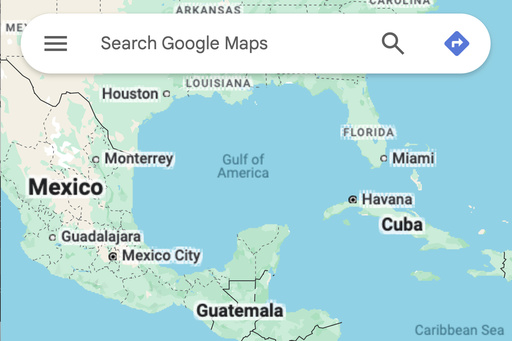NEW YORK — Google has decided to discontinue the automatic inclusion of certain holidays and cultural events from its online calendar, leaving users surprised to find that significant observances like Pride Month, Black History Month, and other notable dates are no longer shown by default on its desktop and mobile applications.
The change attracted considerable attention over the past week, especially as upcoming observances became noticeably absent. However, the company noted that this modification was implemented midway through the previous year. Google, based in California, has historically added a wide array of cultural moments from various nations over the years, enhancing the list of public holidays and national events provided by timeanddate.com, which had formed the backbone of Google Calendar for more than a decade. Despite this, the tech giant acknowledged receiving feedback regarding additional events and countries that were not included.
Google explained in a recent statement that managing a vast number of cultural moments across the globe consistently was neither scalable nor sustainable. Therefore, they reverted back to showcasing only public holidays and national observances from timeanddate.com globally, beginning in mid-2024, while still allowing users to add other important dates manually.
The tech company did not disclose a comprehensive list of the cultural observances removed following this change. Nevertheless, users on social media and community forums have reported the absence of several key events such as the start of Pride Month, Black History Month, Indigenous Peoples Month, and Hispanic Heritage Month, along with Holocaust Remembrance Day. The Verge was among the first sources to highlight these omissions last week.
Time and Date AS, the Norwegian firm responsible for timeanddate.com, has not yet provided comments regarding this recent update. Their site features extensive lists of holidays and observances tailored to various countries, including some cultural events, though public holidays are relatively limited in scope.
In addition to these calendar changes, Google has recently garnered attention for its decision to alter the names of geographic features on Google Maps. This follows directives from the Trump administration, which instructed the renaming of the Gulf of Mexico to the Gulf of America and restoring the name of the nation’s highest peak back to Mt. McKinley. Google stated that they maintain a policy of updating names according to changes reflected in official governmental sources.
Confirming that the new designation Gulf of America is now active, Google noted that users within the U.S. can only view this name on their maps, while individuals in other countries are still able to see both titles. Meanwhile, Denali remains labeled as such on both Google Maps and the Geographic Names Information System (GNIS).
Beyond these updates to Google Maps, the company has initiated changes in response to recent federal policies. Just last week, it announced plans to eliminate certain diversity hiring targets, aligning with a broader trend among U.S. companies that are scaling back their diversity, equity, and inclusion initiatives. This decision was notably influenced by an executive order that seeks to pressure government contractors to discontinue such programs. As a federal contractor, Google stated it is reevaluating the necessary alterations to comply with the new directives.
As of Tuesday, both Apple and Microsoft’s Bing have adopted the name Gulf of America on their respective maps, following Google’s lead.



